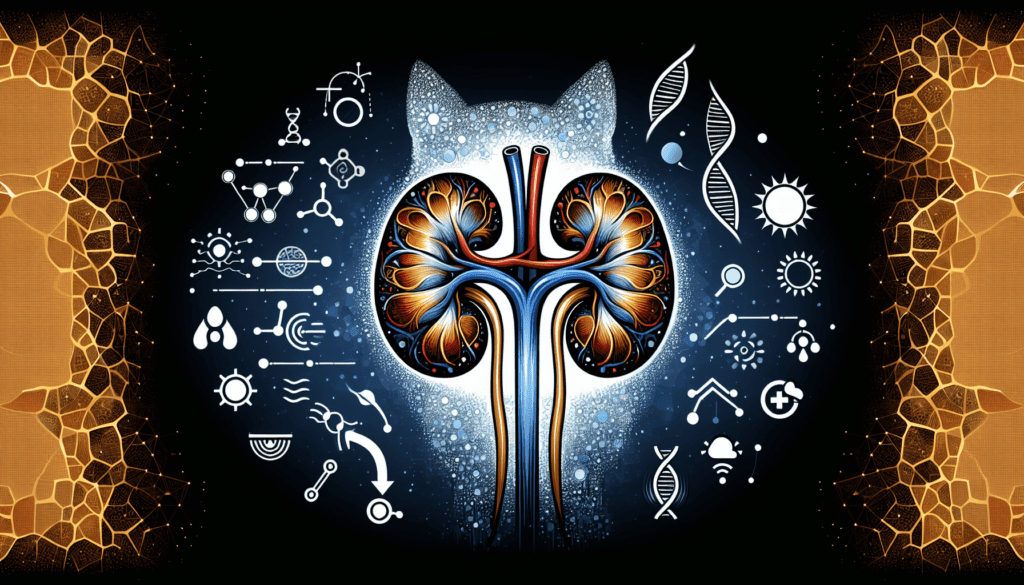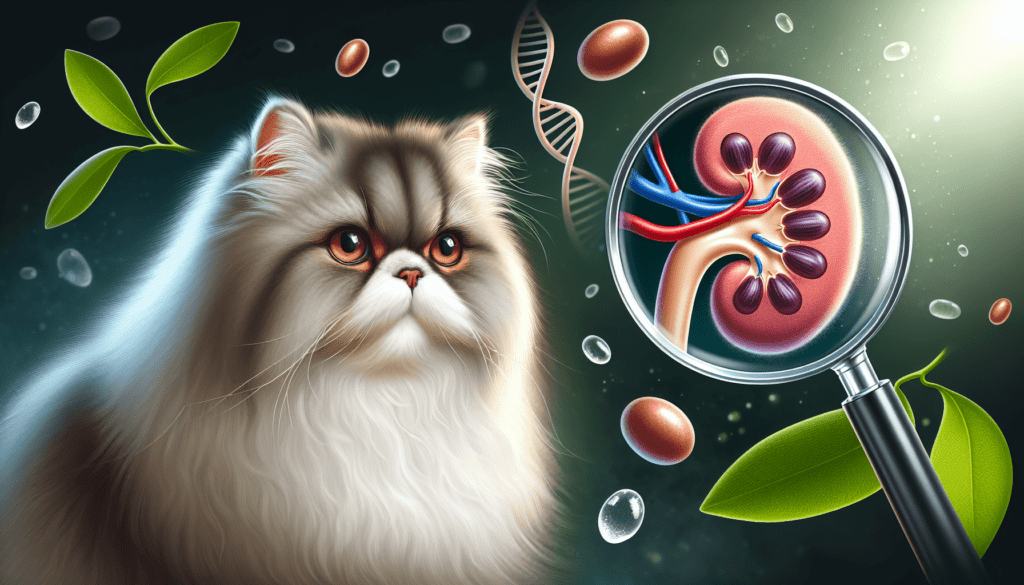Imagine the joy of bringing home a playful and adorable Persian cat, only to discover that its kidneys are not developing properly. It is a heartbreaking situation that no pet owner wants to face. But what could be causing this unfortunate condition? In this article, we will explore the potential factors that may hinder the proper development of a Persian cat’s kidneys, shedding light on this concerning issue and providing helpful insights for concerned cat parents.
Possible Factors Affecting Proper Kidney Development in Persian Cats
Persian cats are known for their distinctive long, silky fur and sweet temperament. While these adorable felines are cherished companions, they can unfortunately be prone to certain health issues, including improper kidney development. Understanding the factors that can contribute to this condition is crucial for cat owners and breeders alike. In this article, we will explore the various factors that may play a role in hindering the proper development of kidneys in Persian cats and how they can be addressed.


Genetic Mutations
Genetic mutations are one of the leading possible factors that can affect the proper kidney development in Persian cats. These mutations can occur naturally or be inherited from one or both parents. Some genetic abnormalities may alter the structure or function of the kidneys, leading to developmental issues. Identifying and understanding these genetic mutations is essential for breeders to make informed decisions in their breeding programs. Working closely with veterinary geneticists can aid in minimizing the occurrence of such mutations in subsequent generations.
Inherited Kidney Disorders
Apart from genetic mutations, Persian cats may also be susceptible to inherited kidney disorders. These disorders are often passed down through generations and can affect the normal development and function of the kidneys. Conditions such as polycystic kidney disease (PKD) and renal dysplasia are examples of inherited kidney disorders that can lead to improper kidney development. Regular health screenings, including genetic testing, can help identify cats with these conditions early on and allow breeders to make responsible breeding choices to minimize the prevalence of these disorders.
Maternal Factors
Maternal factors can significantly impact the proper development of a Persian cat’s kidneys. The health and nutrition of the mother during pregnancy play a vital role in ensuring optimal organ development in her offspring, including the kidneys. Proper prenatal care, including a balanced diet and regular veterinary check-ups, can help maintain the mother’s overall health and reduce the likelihood of developmental issues in her kittens. Ensuring an optimal environment for the mother cat before, during, and after pregnancy is essential for the healthy development of her kittens’ kidneys.
Adverse Environmental Conditions
Environmental factors can also influence the proper development of Persian cat kidneys. Exposure to prolonged periods of extreme temperatures, toxins, and pollutants can have detrimental effects on developing organs, including the kidneys. It is important to create a safe and clean living environment for Persian cats, minimizing their exposure to potential environmental hazards. Ensuring proper ventilation, regular cleaning, and avoiding the use of harmful chemicals can help reduce the risk of environmental factors interfering with the kidney development of these beloved felines.


Prenatal Infections
Prenatal infections can disrupt normal organ development, including that of the kidneys, in Persian cats. Infections such as feline panleukopenia virus and certain bacterial infections can be transmitted from the mother to her unborn kittens. These infections can cause inflammation and damage to the developing organs, potentially impacting the proper maturation of the kidneys. Vaccinating the mother cat against common feline diseases and practicing good hygiene can help reduce the risk of prenatal infections and subsequent kidney development issues in Persian kittens.
Mistakes in Fetal Development
During the intricate process of fetal development, mistakes can occasionally occur, leading to abnormalities in organ formation. While the exact cause of these developmental mistakes may be challenging to pinpoint, it is understood that they can contribute to improper kidney development in Persian cats. Factors such as genetic abnormalities and environmental influences can increase the likelihood of these mistakes. Close monitoring during pregnancy and regular veterinary check-ups can aid in identifying and addressing developmental issues early on.
Diet and Nutrition
Proper diet and nutrition are essential for the healthy growth and development of Persian cat kidneys. Well-balanced meals that meet the specific nutritional needs of a growing kitten can support optimal kidney development. Providing high-quality commercial cat food formulated for kittens, enriched with essential nutrients and minerals, is crucial. Avoiding excessive amounts of certain dietary components, such as salt and protein, can also be beneficial as imbalances may strain the kidneys. Working closely with a veterinarian to formulate an appropriate diet plan for Persian kittens is highly recommended.
Toxic Substances Exposure
Persian cats, like all felines, are particularly sensitive to the toxic effects of certain substances. Exposure to poisonous plants, chemicals, or household products can pose a significant risk to the developing kidneys in Persian kittens. Common items such as lilies, certain cleaning products, and human medications should be kept out of reach to prevent accidental ingestion. It is vital to ensure a safe and cat-friendly environment that reduces the chances of toxic substance exposure and the subsequent impact on kidney development.
Side Effects of Medications
Certain medications, including those used to treat other health conditions, can have side effects that affect kidney function and development in Persian cats. Some drugs may directly target the kidneys, potentially causing harm in growing kittens. It is imperative to consult with a veterinarian before administering any medications to Persian cats, especially pregnant or nursing females. Careful consideration should be given to the choice of medications to minimize the risk of adverse effects on kidney development.
Chronic Illnesses
Chronic illnesses, such as viral or bacterial infections, metabolic disorders, and autoimmune diseases, can affect Persian cat kidney development. These underlying conditions can directly impact organ development or indirectly alter the body’s ability to support normal kidney maturation. Proper veterinary care, regular health screenings, and prompt treatment of any chronic conditions are essential for the overall health and well-being of Persian cats, including their kidney development.
In conclusion, several possible factors can contribute to improper kidney development in Persian cats. Genetic mutations, inherited kidney disorders, maternal factors, adverse environmental conditions, prenatal infections, mistakes in fetal development, diet and nutrition, toxic substances exposure, side effects of medications, and chronic illnesses all play a role in the development and health of a Persian cat’s kidneys. By understanding these factors and taking proactive measures, cat owners and breeders can promote the proper kidney development of these cherished feline companions.

